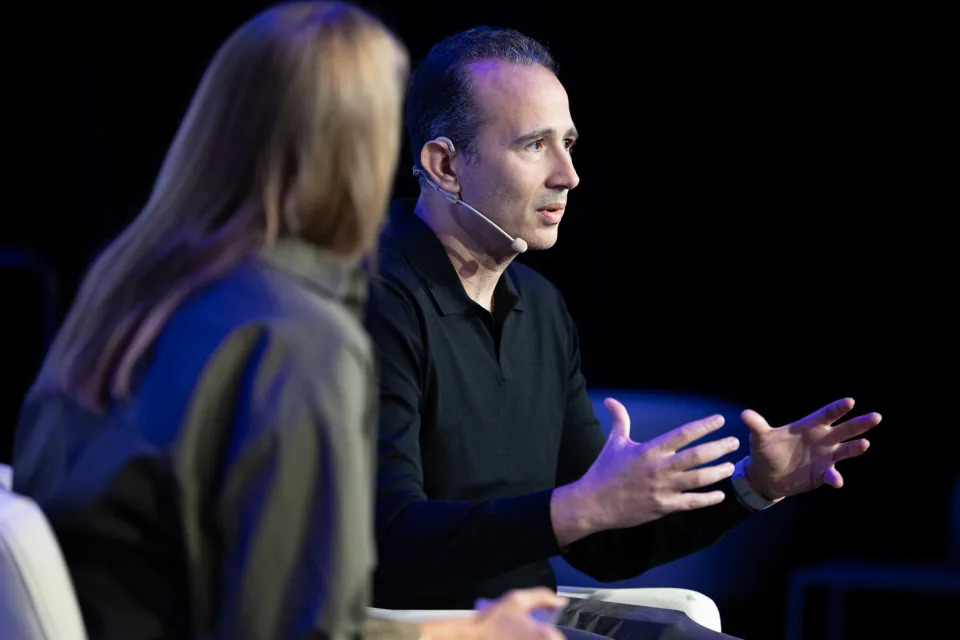The trend of big touchscreens in cars has left many yearning for the not-so-distant days when most user interactions happened with physical buttons. But Rivian’s chief software officer Wassym Bensaid believes using buttons in a car is an “anomaly.”
“It’s a bug. It’s not a feature,” Bensaid said Wednesday at TechCrunch Disrupt 2024. “Ideally, you would want to interact with your car through voice. The problem today is that most voice assistants are just broken.”
To that end, Bensaid said that “every week” he’s driving around an engineering vehicle that has an AI-powered voice assistant, though he did not specify which one. He mentioned earlier in his interview with TechCrunch’s transportation editor Kirsten Korosec that Rivian has “partnerships that I cannot yet talk about.”
“I think the car is actually a fantastic environment for AI,” he said, while noting that latency and hallucinations are still very big problems that need to be solved.
“The final north star I have is having voice [controls] become the primary means of interaction with the vehicle. The reality is that the vehicle is so feature-rich, that even if we do a fantastic job in the UI, there will always be prioritization that we need to do in terms of having things one or two menus behind,” Bensaid told TechCrunch after he got off stage.
Bensaid also said he’s a big believer in the ability of AI-powered voice controls to handle complex requests. For instance, he said if a driver says “I’m hungry” the in-car assistant should be able to quickly direct them to a nearby restaurant that they might prefer.
This is not a dramatically new idea; Automakers like Mercedes-Benz have spent years promising a seamless voice-controlled in-car experience, with mixed results. But Bensaid said Rivian’s goal is to make it possible to take every touchscreen control and make it available by voice.
Before any of that happens, Bensaid said he remains focused on delivering a custom experience to Rivian owners — meaning CarPlay is not showing up anytime soon. While he said the team inside Rivian “continue[s] to debate that,” he said on stage that he believes leveraging CarPlay is “laziness” and that he prefers to integrate specific apps, like Apple Music.
CarPlay “takes over all the pixels in the screen, and it’s a replacement of the entire experience, and we truly believe that with the technology capabilities that we have, we can offer a much more refined, integrated experience,” he said.



